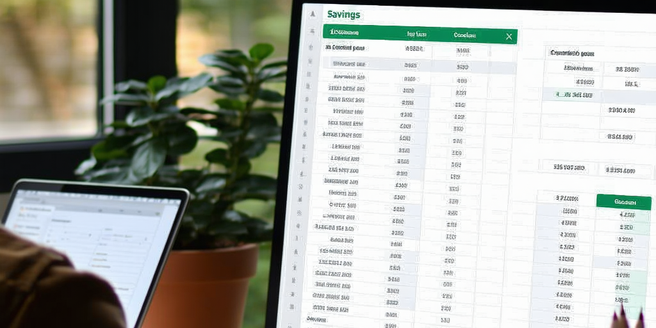
Understanding the Link Between Finances and Self-Awareness
| Aspect | Financial Impact | Self-Awareness Benefit |
| Budgeting | Improved savings | Recognizing spending patterns |
| Spending Habits | Controlled expenses | Gaining insight into impulsive buys |
| Savings Plans | Building a financial cushion | Understanding saving motivations |
| Investment Choices | Potential wealth growth | Evaluating risk tolerance |
| Debt Management | Reducing financial stress | Acknowledging debt triggers |
Why Self-Awareness is Crucial for Financial Success
Becoming self-aware is a cornerstone for financial success because it allows individuals to understand their motivations, behaviors, and emotions surrounding money. Self-awareness helps uncover patterns that might hinder your financial progress, such as emotional spending or procrastination. By identifying these tendencies, you can create strategies to counter them, thus improving your financial health. Additionally, self-awareness encourages seeking advice and learning from others’ experiences. This reflective approach can lead to continuous personal growth and financial wisdom. Moreover, self-awareness fosters responsible decision-making, empowering individuals to set realistic goals and develop disciplined habits. The journey to financial success is paved not only with practical tools but also with a deep understanding of oneself, which enriches the entire experience.
Identifying Your Financial Habits: A Self-Assessment Guide
Conducting a self-assessment is vital for identifying financial habits, both positive and negative. Start by tracking your spending over a set period to observe any trends or recurrent expenses. This will help you understand how your behavior influences your financial health. It’s crucial to be honest and detailed in this process for the best results. Additionally, reflecting on the emotional triggers behind spending can reveal areas that need attention. Ask yourself questions like ‘Do I spend more when I’m stressed?’ or ‘Am I saving consistently?’. This insight will aid in aligning your actions with your financial goals. Ultimately, a thorough self-assessment provides a clearer picture of your financial lifestyle and areas for improvement.
Common Financial Pitfalls and How to Avoid Them
Common financial pitfalls often include overspending, neglecting emergency savings, and failing to plan for the future. It’s crucial to educate yourself about financial literacy as it forms the foundation for making informed decisions. Taking a financial literacy course can further enhance your understanding of managing money effectively. Overspending can be avoided by setting a realistic budget and making deliberate spending decisions. Neglecting savings can be addressed by establishing automatic transfers to a designated savings account, ensuring you consistently prepare for unexpected expenses. Planning for the future involves setting long-term financial goals and understanding the importance of investments and retirement plans. By being proactive and mindful of these pitfalls, you can maintain a healthy financial status and achieve greater stability and peace of mind.
The Role of Emotional Spending in Financial Decision Making
Emotional spending is a significant factor in financial decision-making, often driven by stress, boredom, or the desire for instant gratification. Recognizing the triggers for emotional spending is crucial for maintaining financial control. By identifying these triggers, individuals can take proactive steps to address the root causes of their spending habits. One effective approach is to keep a spending journal that helps track and reflect on purchases influenced by emotions. Understanding your emotional connection to money allows you to implement strategies to manage these impulses such as pausing before a purchase or opting for a non-spending activity to manage emotions. This level of self-awareness provides the discipline needed to make more informed financial choices and aids in aligning spending behaviors with long-term financial objectives, ultimately enhancing your financial well-being.
Building a Budget: A Step Towards Greater Self-Awareness
Building a budget is an essential step in developing financial self-awareness. It requires evaluating your income, tracking your expenses, and setting financial priorities. This exercise can reveal patterns that may have previously gone unnoticed. Additionally, it provides a sense of control and peace of mind as you navigate your financial future. This process encourages individuals to reflect on their spending habits and make adjustments that align with their values and goals. Developing a budget acts as a roadmap, guiding spending decisions and fostering accountability. It highlights areas where spending can be reduced, thus redirecting funds toward savings or debt repayment. A well-structured budget serves as a tool for greater self-awareness, creating a clearer path towards financial success.
How to Replace Negative Financial Habits with Positive Ones
Replacing negative financial habits with positive ones begins by acknowledging the habits that harm your financial health. Challenge these behaviors by setting realistic goals and forming a plan to achieve them. Introduce positive habits gradually, such as automating savings or restricting impulse purchases. Remember, consistency is key to building lasting habits. Additionally, keeping track of your progress can provide motivation and insight into your financial journey. It’s beneficial to seek support from financial resources or a mentor to stay accountable. Celebrate small victories to encourage continued progress. Over time, the practice of replacing negative habits will enhance your financial stability and reinforce positive changes that contribute to long-term financial growth and success.
The Power of Mindfulness in Managing Your Finances
Practicing mindfulness can significantly impact financial management by fostering a present-focused awareness that influences spending and saving decisions. Mindfulness encourages individuals to be attentive to their financial behaviors and the emotions linked to them, leading to more deliberate and conscious financial decisions. By being present, you can avoid reactive decisions driven by impulse or emotion and instead align each transaction with your broader financial goals. This mindful approach allows you to clearly assess financial opportunities and risks, ensuring your choices are well-informed. As individuals become more mindful of their financial actions, they often find greater satisfaction and peace of mind in their financial lives. Adopting mindfulness leads to a holistic understanding of your financial practices, enabling you to cultivate healthier financial habits and make decisions that support long-term financial well-being.
Creating Long-Term Financial Goals with Self-Insight
Creating long-term financial goals requires introspection and self-insight to ensure that the objectives align with your life’s vision and values. Consider your current financial standing and future aspirations, including savings, investment targets, or retirement plans. Setting clear priorities can help in managing resources more efficiently. Self-insight will guide you in setting realistic milestones that motivate and challenge you. It’s also important to stay informed about financial trends and market changes that could impact your goals. Use self-reflection to understand potential challenges and opportunities in your financial journey. With these insights, formulate a strategic plan, and regularly evaluate progress to ensure you remain aligned with your financial aspirations. Through consistent self-assessment, long-term goals become more tangible and achievable.
Tools and Resources to Enhance Financial Self-Awareness
A variety of tools and resources can enhance financial self-awareness, from traditional budgeting methods to technological solutions like apps and software. Budgeting apps provide real-time tracking and analytics, fostering a better understanding of spending habits. Financial literacy courses and personal finance books offer in-depth knowledge of managing money effectively. Regularly updating one’s financial plan can also help in adapting to life changes. Creating a routine to review financial goals can keep you accountable and motivated. Seeking professional guidance through financial advisors can also provide personalized insights and strategies. Online forums and support groups facilitate knowledge sharing and peer support. By utilizing these tools, individuals can elevate their financial awareness and make well-informed decisions that reinforce their financial health.

